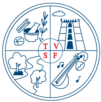Aalaap is an ancient form of contemplative music, which exercises the brain and regulates the emotional flow in a pleasant manner. Though the negative emotions such as fear, anger, melancholy etc. are expressed through ragas, they are expressed so pleasantly that they do not have any adverse effect on the listeners.
Recent years have witnessed the revival of research on Indian ragas for their therapeutic role. We all know that Indian ragas can effectively address the emotional needs of humans in a subtle and unpretentious way. Thus, it can be an adjunct to counselling.
Ragas have been known for their emotional impact on humans for a very long time. Most of the ancient texts and manuscripts depicting ragas as a medical intervention (e.g., Raga Chikitsa) are still untraceable and some of them are totally lost with the passage of time. However, some of the remnants of these texts are fortunately available to this day, thanks to the efforts made by the Tanjore Saraswathi Mahal Library, since independence. They all go to show that Indian musicology had given adequate emphasis on the emotional role of ragas through trials and errors and had come out with a choice of tones (swaras) that affect the emotional needs of listeners.
Aalaap or improvisation of a raga is one of the many popular areas of classical music in India. Aalaap is regularly practiced by both Carnatic as well as Hindustani musicians. As aalaap refers to the contemplative exposition of a raga with irregular phrase sans rhythm, it is highly intuitive and emotional in character. It helps the musician and his or her listener in channelizing and expressing the emotional horizons freely without bothering with the social etiquette or behavioural restraints in normal social living.
Aalaap, (also referred to by some as `aalapana’) according to the musical traditions, can be divided into the following five parts:
Akshiptika (Also, Aayatham): Aayatham is a Tamil word, which means ‘preparation’. The Sanskrit word `akshiptika’ refers to `throwing out in all directions’. Here, the emphasis is just to commence the musical experience with a selected raga-piece, by pronouncing the swaras (notes) in an enjoyable way, so as to bring out the subtle emotion (raga bhaava) from a centre-point. It involves a slow, smooth and leisurely way of extending the emotional nuances hidden behind these swaras, by exploring both elevation (aaroha) and downfall (avaroha). It is like switching on an airplane by the cockpit crew before its take off. The detailed description of this stage has been described in Sangita Ratnakara, the oldest text available on music.
Raga Vardhani (Also, Eduppu) : Raga vardhani refers to the take off-stage in raga experience. The Tamil word, `eduppu’ here connotes the beginning of the expansion of the chosen raga. Having acquired a clear form by now, the musician is ready for a take-off. Raga vardhani thus begins its voyage!
Makarini (Also Vartani) In this form of aalaap, all the swaras show their heads. It refers to the top of expansion of the raga. Muktayi (Also, Nyasa) All good things have to come to an end! It refers to the finale of the aalaap.
Conclusion
Aalaap is an ancient form of contemplative music, which exercises the brain and regulates the emotional flow in a pleasant manner. Though the negative emotions such as fear, anger, melancholy etc. are expressed through ragas, they are expressed so pleasantly that they do not have any adverse effect on the listeners. On the other hand, it is this author’s experience that such negative expressions, expressed so pleasantly through the ragas, help in addressing similar negative emotions suppressed by listeners. With powerful tones and tunes, sounds and beats, it is possible to address such emotional incrustations through catharsis.
References
Sastri, K. Vasudeva 1958 Raga Alapanas & Thayams Tanjore: Saraswati Mahal Library
Sairam, T.V. 2007. Self- Music Therapy: Musings on Music Therapy Chennai: Nada Centre for Music Therapy
Sairam, T.V. 2004 Raga Therapy Chennai: Nada Centre for Music Therapy.
This article was published in ‘Ayurveda and All’ April 2011 – Pages 23, 24
Edited by Geeta Shreedar, August 25, 2021
